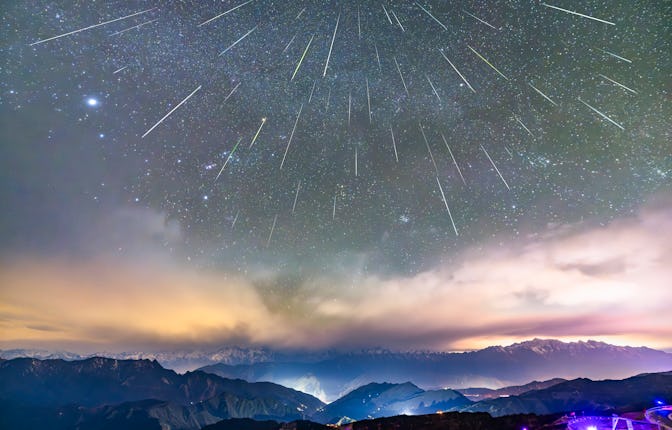Geminid Meteor Showers Peak This Week — Here’s How To Catch The Show
Witness one of nature's most spectacular shows this month.

Every December, stargazers eagerly await the Geminid meteor shower, one of the most anticipated astronomical events of the year. It is set to peak this week, with the most activity on Friday and Saturday, December 13 and 14 and heightened activity for the following week. With a potential for up to 120 meteors per hour under perfect dark skies, this natural phenomenon promises an enchanting display that you won't want to miss.
What Makes the Geminids So Special?
Unlike many other meteor showers that originate from comets, the Geminids are unique as they stem from an asteroid named 3200 Phaethon. This rocky body sheds debris as it orbits the Sun, creating a trail of particles that enter Earth's atmosphere at high speeds. When these particles collide with our atmosphere, they burn up and create those stunning streaks of light we know as meteors. This distinct origin contributes to their reliability and brilliance — making them some of the brightest shooting stars available for viewing.
When and Where to Look
The peak viewing time for this year’s Geminids is expected during the night hours leading into December 14th. However, you can catch some activity a few nights before and after this date. This year presents a bit of a challenge due to a near-full moon illuminating parts of the night sky. While moonlight can wash out fainter meteors, experts advise that brighter meteors will still be visible amidst this glow. So don’t let lunar brightness deter you; keep your eyes peeled for those dazzling displays!
A Cosmic Reminder
The Geminid meteor shower serves not only as an impressive visual spectacle but also as a reminder of our place in the universe. Each shooting star represents remnants from an asteroid orbiting through space long before humans walked on Earth. These fleeting moments connect us with cosmic history — reminding us how small we are in comparison yet how beautiful our world can be when we look up at night.
So gather your friends or family, find a dark spot away from city lights, and prepare for an unforgettable evening under the stars this December! Whether you're hoping to make wishes on falling stars or simply enjoy nature’s showmanship, don’t forget that magic awaits when you look up.